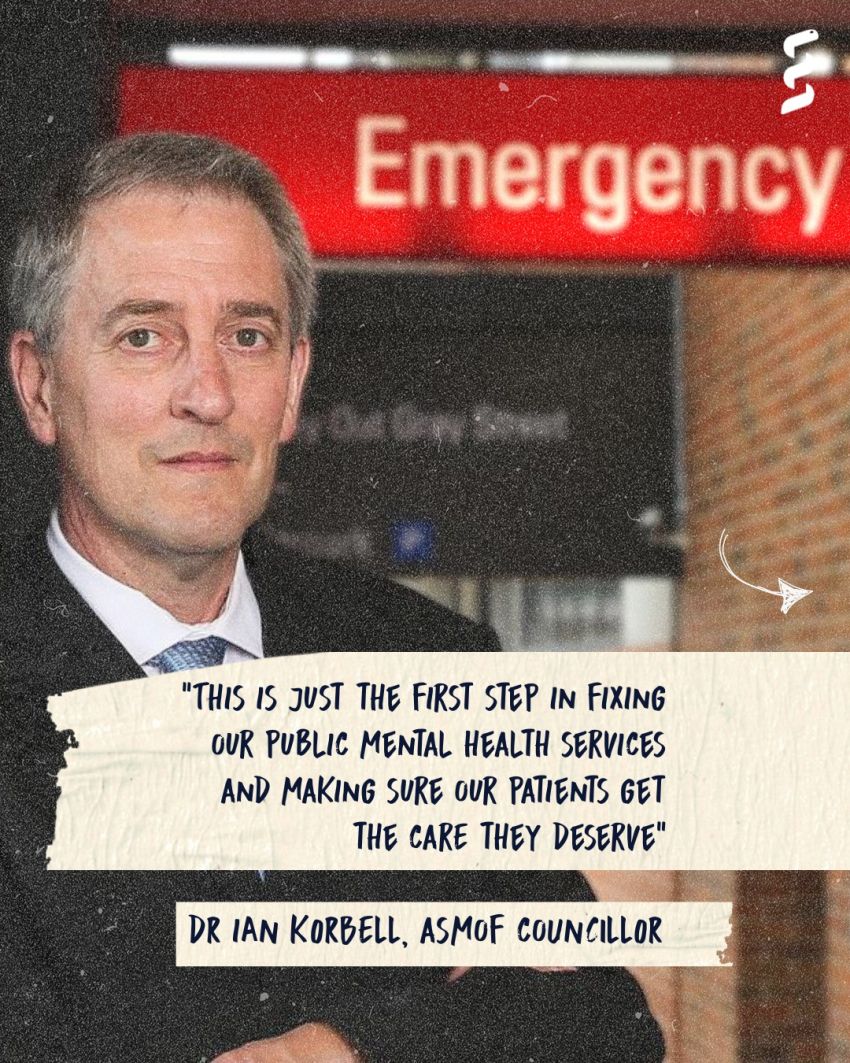
The Doctors Union (ASMOF) said the NSW Industrial Relations Commission’s ruling on October 3 vindicates its case on the urgent need for better funding of the mental health system.
The IRC also awarded an interim appropriate pay rise to support NSW psychiatrists and ease pressure on the crisis-ridden mental health system.
ASMOF Councillor Dr Ian Korbel said the decision “is a major win for psychiatrists across NSW, who, since January this year, have courageously put their livelihoods and careers on the line to stand up for a better mental health system for their patients.
“Today, after months of hearings, expert testimony and extensive deliberation, the NSW IRC has finally accepted ASMOF’s arguments that there was a crisis in the NSW mental health system, which was having an adverse impact on the community, and something urgently needed to be done about it.”
The IRC accepted that the crisis was caused by an acute shortage of psychiatrists, stemming from low pay and unsustainable work conditions. It ruled a 20% attraction and retention allowance should be granted.
Korbel said this modest and necessary pay rise “will help bring psychiatrist remuneration in line with other states and territories” and help attract and retain the psychiatrists needed to “shore up the crumbling NSW mental health system”.
He told a media conference outside the court that “none of us thought at the beginning of the year we’d have to be here [at the IRC]. We thought we’d be able to negotiate with the state government … today what was found today in court which is that the public health sector is struggling in the psychiatric area.”
Korbel said doctors are mainly concerned with the systemic issues, many of which still have to be resolved. He said the NSW government had not been interested in discussing that, instead making out that doctors are only interested in a wage rise. He said the court’s decision vindicated the doctors in finding that “the public health sector is struggling in the psychiatric area”.
He pointed to three areas needing serious attention: Workforce; Investment in community mental health sector; and Housing for patients which have severe mental illness. “They are the focus of what we wanted to change. Unfortunately, they did not want to hear this; they wanted to see it as an industrial action about money.”
Korbel said psychiatrists, who he said like to think of themselves as altruistic, are still very upset about the Labor government’s refusal to seriously engage. “We’ve had 10 months when the system has been struggling. We need investment … NSW, in particular, are the laggards; we have the least funding for mental health in the country. We don’t even have a dedicated budget for mental health.”
Victoria and Queensland are using payroll tax to fund the mental health budget, Korbel said. “If we asked the general public, they would say that mental health a vital concern for them.”
Korbel said the investment in community mental health means that people will not need to come into hospital and sit around in emergency departments. “We need investment in housing so that people aren’t living rough on the streets, or put in jail. Ten percent of prisoners in NSW have a serious mental illness. That’s well over 1000 patients who are in prison when they should be having treatment. And prison doesn’t help them.”
He said the doctors walked out earlier this year due to despair over pressures that have been building up for five years. They want to return but “whether they will be allowed to return is not clear”.
The IRC has ordered an interim attraction and retention 20% for staff specialist psychiatrists which will take effect shortly. It did not grant a claim for a doctors-in-training allowance and other measures sought for an updated award including a joint staff committee to address workforce shortages and appropriate support for psychiatrist trainees.
Korbel said psychiatry trainees have little incentive to start, or continue their training, which puts “the future pipeline of psychiatrists for the NSW mental health system at risk”.